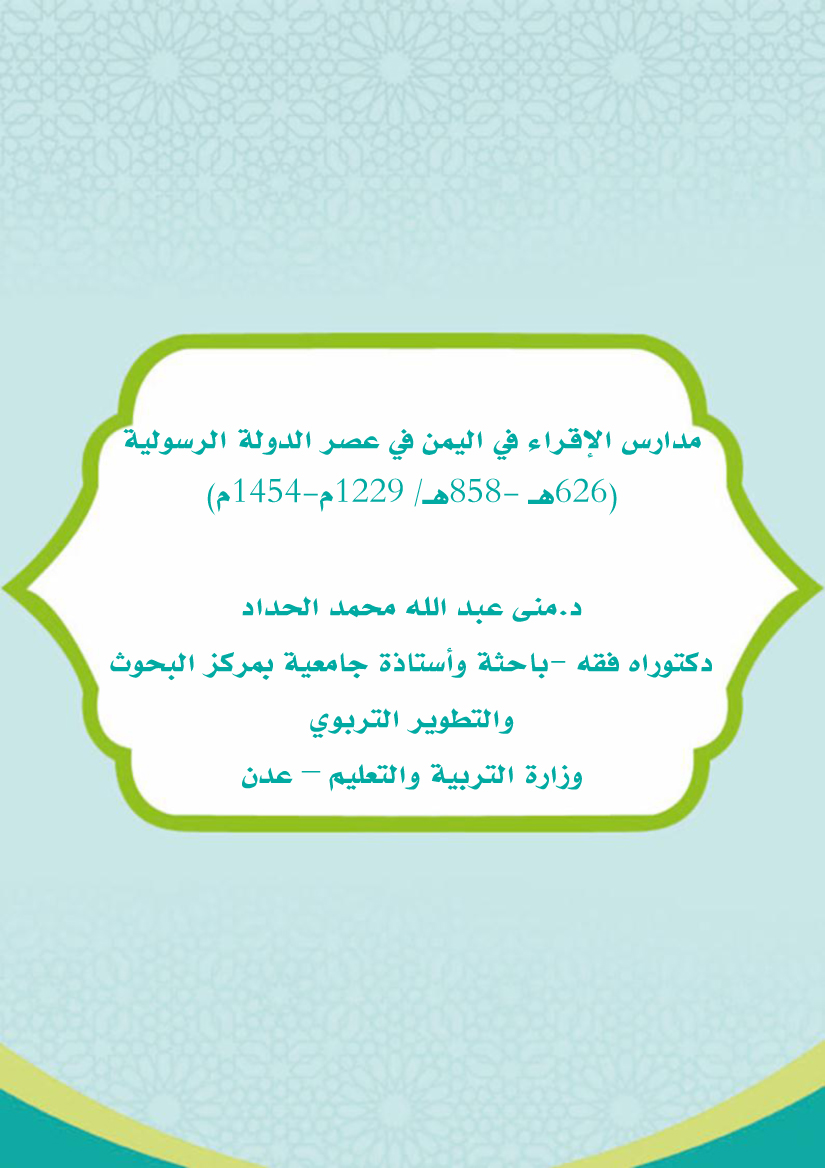Schools of reading in Yemen in the era of the Rasulid state
DOI:
https://doi.org/10.61821/pfjjpk18Keywords:
The Apostolic State, Schools of Reading, Scholarly LifeAbstract
The study dealt with introducing the Rasulid state, through a historical overview
of it and a scientific overview, and the study aimed to explain the most important
schools of recitation that were established and built by the kings and princes of
the Banu Rasul in Yemen to teach the recitation.
The methodology of the study was the descriptive approach based on gathering
information from various references and sources.
The study concluded with a number of results, the most important of which
are: that the Rasulid state was one of the largest Sunni countries that was able to
extend its influence over most parts of Yemen, and they had a role in the scientific
life in Yemen, and they took the most care of the role of science, so they
constructed schools, attached them to book coffers, and established schools.
Specializing in the teaching of specific sciences such as readings, hadith and
jurisprudence. In addition to the joint schools, the establishment of schools was
not limited to the sultans of the state, but rather princes, jurists, some ministers
and women of the Apostolic House contributed to it, and schools specialized in
the science of recitation had a role in producing a large number of reciters at that
time.
The study also reached a number of recommendations, the most important
of which are: expanding the circle of research, seminars and conferences on
reading schools in Yemen, printing Yemeni books on the science of readings to
introduce the successors to what the predecessors left for them to contribute to
motivating them so that they follow their example, and enriching Arab offices
with the efforts of Yemenis in building Islamic schools and schools of reading,
By printing books and research papers that dealt with that.
Downloads

Downloads
Published
Issue
Section
License
©This article is an open access article distributed under the terms and conditions of the Creative Commons Attribution (CC BY) license



